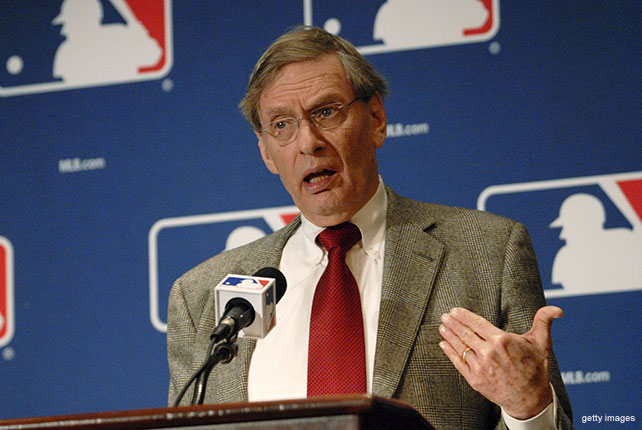
August 12, 1994: The Major League Baseball Players' Association begins a strike against the league's owners.
Although Major League Baseball's average attendance passed 25,000 fans per game for the first time during the 1988 season, owners said teams were in poor financial shape due to growing player salaries. The owners discussed a potential salary cap, but the players refused to accept it during negotiations.
In June 1994, owners' representative Richard Ravitch officially proposed a new deal involving set team payrolls, but MLBPA Executive Director Donald Fehr emphatically denied, threatening that his players would refuse to play if the terms did not become more player-friendly.
Little progress was made, and on August 12, the MLBPA officially began its strike.
With the league losing key games as the playoffs approached, commissioner Bud Selig attempted to resolve the situation, but there was no solution. A last-gasp MLBPA proposal on Sept. 8 was denied by the owners, and on Sept. 14, the league officially decided to cancel the rest of the 1994 season.
Still, this wasn't the end of the conflict, as 1994 concluded without any agreement between the two sides. The MLB prepared to begin the 1995 season with "replacement players."
The league postponed the start of the regular season, trimming it to 144 games instead of the normal 162 as a result, but it was still ready to proceed with the new personnel until March 28, 1995, when the MLBPA voted to return to playing if the U.S. District Court supported the National Labor Relations Board's claim that the owners were using unfair labor practices. The court agreed, and the strike came to an official end on April 2, with the shortened regular season beginning soon after.
While the whole league unquestionably suffered from the scandal, the Montreal Expos were particularly devastated. Owning the league's best record (74-40) at the time of the strike, the squad was filled with young talent like Cliff Floyd, Felipe Alou, Larry Walker and Pedro Martinez, and they were poised to end Atlanta's streak of three straight divisional titles.
However, the new financial agreement forced the small-market team to lower its payroll and lose some of its stars, as the potential shown by the 1994 squad was never met again. The Braves went on to win every NL East title from 1995-2005, while the Expos were forced to move to Washington in 2005 and did not make a playoff appearance between 1981 and 2012. This Fox Sports feature interviews several coaches and players from the 1994 team as they lament on the dynasty that could've been:
Although the league initially lost interest due to the strike -- average attendance in 1995 was down to roughly 25,000 fans per game, compared to more than 31,000 in 1994 -- it has since recovered. There has been average attendance of at least 30,000 for each of the past 12 seasons.




